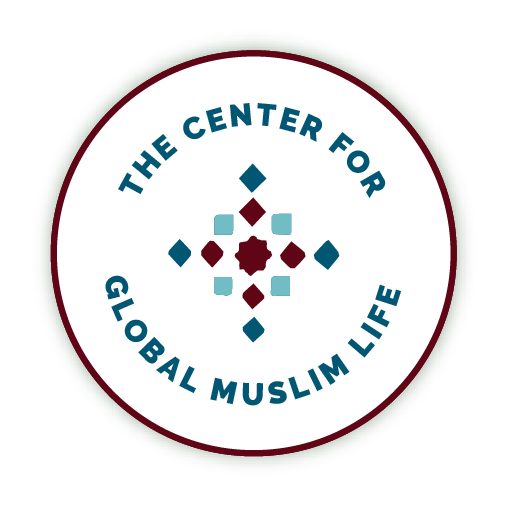A Global Vision for the Future of Humanity
MISSION
The Center for Global Muslim Life is a 50 year project launched in 2020 focused on rebuilding Muslim communities (Ummah) in the midst of a global war. We are an Americas-rooted nonprofit creating long-term narrative change through media production, community ecosystem building, and leadership training focused on social and spiritual impact work in the world’s largest and most diverse faith community. The Center for Global Muslim Life builds community-rooted ecosystems with a diverse set of faith leaders, media producers, researchers, cultural strategists, artists, technologists, impact investors, community organizers, and policymakers from throughout the United States and from around the world working on key issues impacting Muslim communities. CGML is focused on the role Muslims are playing in creating global social impact, spiritual impact, diverse narratives, and our unique contributions to the fabric of our rapidly changing world.
VISION
In 2017 Dustin Craun was living in Kuala Lumpur and started reflecting with a group of interlocutors about the future of global Muslim life around the world. From that early ideation, and the work we had built starting in 2015 with our company Ummah Wide, we finally launched in the midst of the COVID pandemic on the first day of Ramadan in May 2020. The world knows about the multifaceted layers of crises that Muslims face, the wars, and Islamophobia but what do even Muslims know about the leaders in our community building the collective future? What do we know about Muslims making a social and spiritual impact around our world? What do we know about diverse narratives about Muslims being produced around the world? The diverse startups growing around the world to serve Muslim communities?
We asked ourselves this central question, what would it look like to create a center that is future-oriented and that creates space for cultural producers? What would it look like to create something visionary and move away from the constant reactionary thinking that our community has been stuck in for the last twenty years? Finally, we asked, how would we move beyond just researching and writing about global Muslim social and spiritual impact and actually create an impact ourselves.
Today global Muslim communities are known primarily through the singular narrative produced through media and cultural production, of terrorism, war, Islamophobia, and the global refugee crisis with media and academic institutions focusing on Arab Muslims who make up only 15-20% of global Muslim populations. Nearly 70% of the world’s Muslims live in Asia and Africa yet in terms of popular representation the uniquely diverse Muslim populations across the world have very little representation. Muslims are unique as a multi-civilizational community with large diasporas of peoples all around the world. With large populations in Southeast Asia, South Asia, throughout North, East, and West Africa, with large populations across the middle east and Eastern Europe, and with large minority populations in Europe, the Americas, and East Asia.
Over the next 50 years, our world will see unprecedented change when more than 70% of humanity is expected to live in urban areas, as global power will continue to shift and become multi-polar. Technology will play an ever-increasing role in our daily lives through the rapid growth of artificial intelligence and climate change will impact our world in ways that we cannot fully predict. The landscape of religious communities will also change rapidly over the coming half-century as global Muslim populations will grow from an expected population of 2 billion in 2020 to over 3 billion people by 2070, meaning that Muslims will make up one-third of humanity.
Muslims have created unique global networks that despite great differences across communities, have historically shown strong solidarities most explicitly represented in the life and legacy of Malcolm X’s global vision of Islam, what Sohail Daulatzai calls the “Muslim International.” This international collective of global Muslim life is a call to global solidarity amongst Muslims and with peoples throughout the world who face similar forms of oppression. As Daulatzai clearly states,
“Malcolm forced and compelled the Muslim International to be a broad and inclusive space that understands the overlapping histories and interconnected struggles that not only shaped the modern world but that also shaped the conscience of the Muslim International as a site for radical justice and equality.”
Today Muslim communities face oppression and are building resistance both within Muslim-majority countries, as well as throughout the US, Europe, and Australia. This reality of overlapping countries where Muslims make up large minority diasporic populations and global spaces of social impact, political, and artistic resistance is an emerging reality, that has been grossly understudied within the Muslim community or academic studies at large. Islamic studies departments in Western academia have never fully distanced themselves from their colonial roots within area studies and have primarily focused on lands that the US and European military power were interested in.
The Center for Global Muslim Life is tasked with conducting key research on these issues as well as creating convenings for academics, community leaders, and the media. We must take our narratives into our own hands to more fully understand these issues beyond the current scope of Muslims seen only in the light of terrorism and Islamophobia. Below is an outline of the core issues we will focus on in the coming years as we build out the Center for Global Muslim Life.


